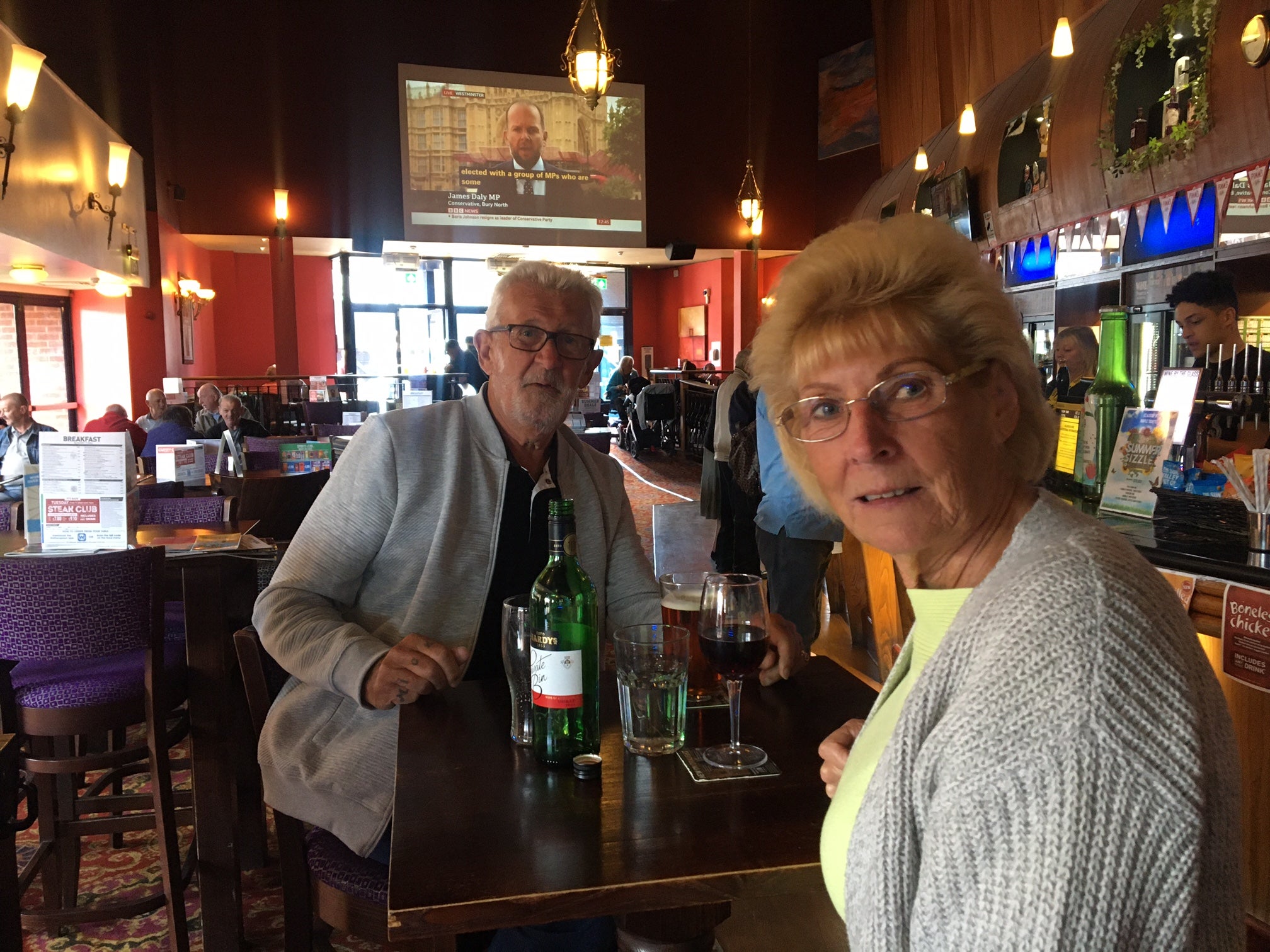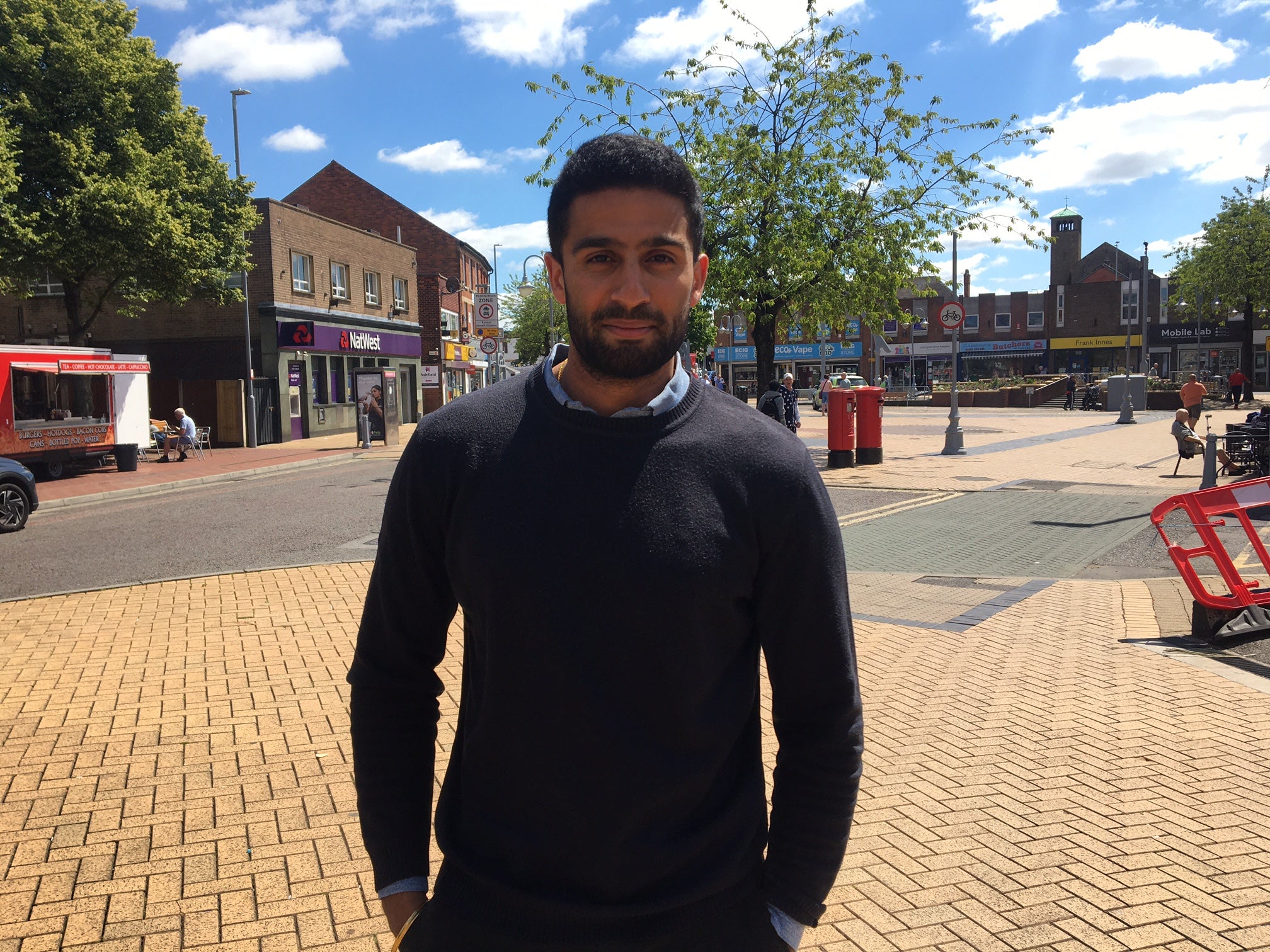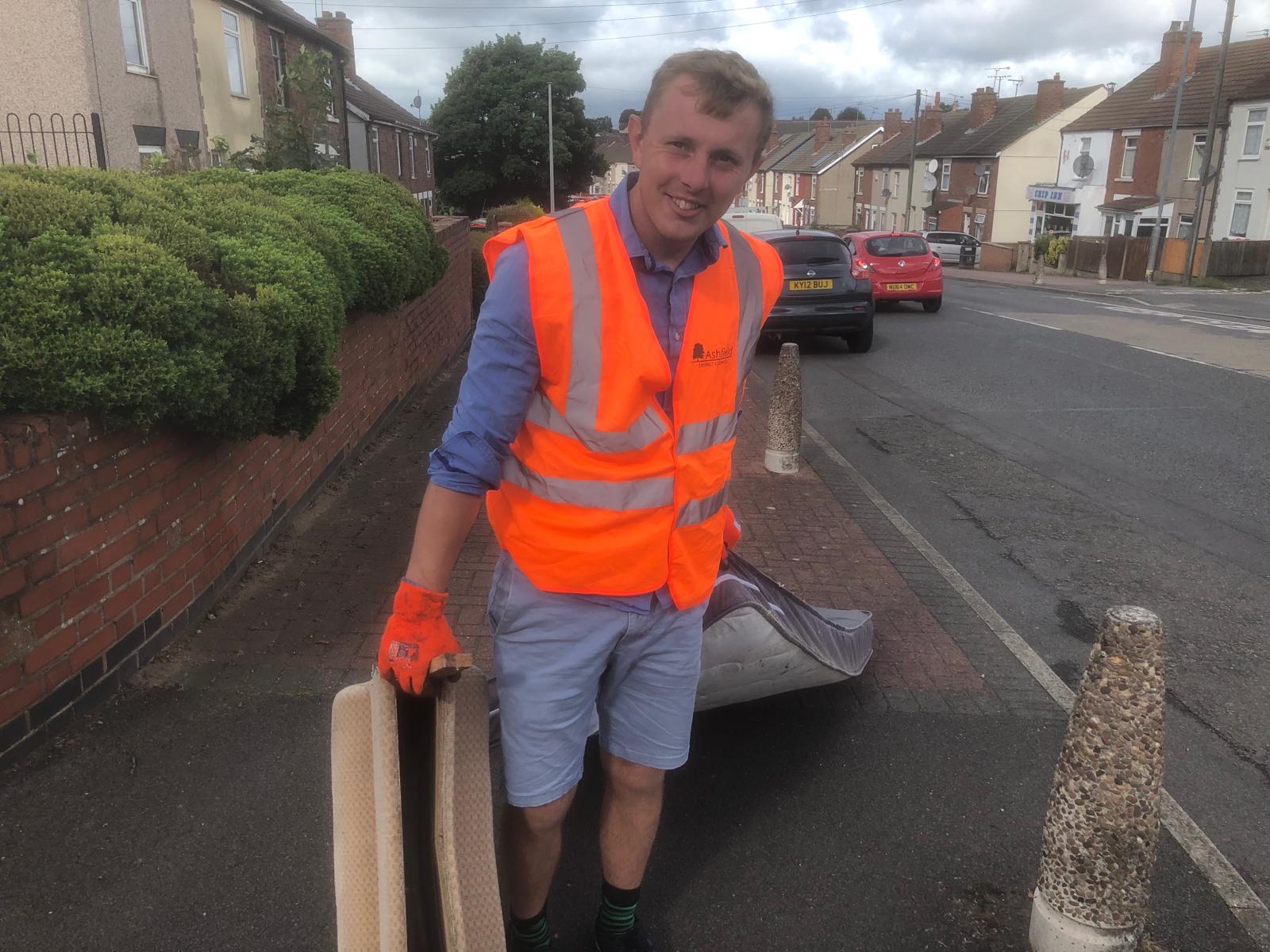‘He was playing us for fools’: Red wall Ashfield welcomes Johnson’s resignation but asks: who now?
The wider Ashfield constituency voted blue for the first time at a general election since 1955
Your support helps us to tell the story
From reproductive rights to climate change to Big Tech, The Independent is on the ground when the story is developing. Whether it's investigating the financials of Elon Musk's pro-Trump PAC or producing our latest documentary, 'The A Word', which shines a light on the American women fighting for reproductive rights, we know how important it is to parse out the facts from the messaging.
At such a critical moment in US history, we need reporters on the ground. Your donation allows us to keep sending journalists to speak to both sides of the story.
The Independent is trusted by Americans across the entire political spectrum. And unlike many other quality news outlets, we choose not to lock Americans out of our reporting and analysis with paywalls. We believe quality journalism should be available to everyone, paid for by those who can afford it.
Your support makes all the difference.As Boris Johnson announced his resignation outside Downing Street, Mick and Christine Lakin sat in the Wetherspoon pub in Sutton-in-Ashfield watching the sorry spectacle unfold on TV. “Well,” declared 76-year-old Mick philosophically. “He bollocksed that one up.”
When people once talked of Mr Johnson being able to reach parts of the country that other Conservatives could not, it was places like this former Nottinghamshire pit town they had in mind.
In 2019, the wider Ashfield constituency voted blue for the first time at a general election since its creation in 1955.
Getting Brexit done and levelling up – as well as Mr Johnson’s unconventional character – have been big draws in an area that had come to feel taken for granted by Labour amid decades of decline. Only last month, the local MP – Lee Anderson, himself a former miner – said his inbox was still “full of people who are fed up to death” of what he termed a “witch hunt” against Mr Johnson.
Yet, today, even here, there appeared a widespread welcoming of the prime minister’s decision to leave office.
“I actually think he did a fantastic job for the first year or so,” said Mick Lakin, one of those lifelong Labour voters who turned Tory in 2019. “He got Brexit done – or largely done – and he dealt with the pandemic well enough. And I think he’s trying to sort immigration out, which is needed.”
But?
“He’s a liar,” the retired digger driver said. “We gave him our vote – not just here, the country – and his thanks has been to constantly play us for fools. Well, you get found out doing that.”

Christine – a former secretary and also a first-time blue in 2019 – had a rough theory: the moment Mr Johnson’s fate was sealed came not with the Chris Pincher scandal but far earlier, when he decided to deny knowledge of there being illegal lockdown parties in Downing Street.
“If he’d held his hands up and said he’d made a mistake, that would have been an end to it and he’d still be [prime minister] now,” she said. “You can accept a mistake, but not a lie.”
The couple, as it happened, had only come out to cheer themselves up after Christine broke her toe that morning. Would they now be having another drink to toast this historic moment? “We don’t need an excuse to have another drink, duck,” came her reply.
Cheers to that.

Parked outside, taxi driver Andy Jones was of much the same opinion about Mr Johnson: the word liar, in particular, now seems to have attached itself to the PM in a way that feels permanent.
“How can you have a prime minister where you don’t know if he’s telling the truth?” asked the grandfather of two, who actually voted Lib Dem in 2019. “People round here, they work hard to get by and they don’t expect behaviour like that. He even lied yesterday.”
Wait? Did he?
“Aye, he said he’d be staying on when every sod knows you can’t be prime minister with 50 resignations on your hands.”
Talk now, of course, is already turning to who should take over. The names of so-called Tory big beasts – Liz Truss, Jeremy Hunt, Ben Wallace – were met with little recognition among voters here. Safe to say, Steve Baker – who has said he might chuck his hat into the ring – could probably walk through the town’s Idlewells Shopping Centre without being mobbed.
Does that mean there should be a general election?
A sigh from Jones. “Probably,” was his verdict. A customer climbing into the back of his cab considered this. “Not that there’s anyone worth voting for,” she declared.

On this point – the belief that a new leader should seek a new mandate – there was some agreement. “We’ve had enough elections over the last few years,” said optometrist Sunny Johal, 28. “Why not one more?”
Who would he vote for? The traditional grimace that has come after such a question. “Probably Labour,” he said with little enthusiasm. “I don’t know. What do they even stand for these days?”
This might be the central issue for Sir Keir Starmer’s party: Mr Johnson’s metaphorical defenestration does not immediately appear to mean an easy retaking of seats like Ashfield, where a 4,000-staff Amazon warehouse is now among the biggest employers.
Indeed, the Labour fall here was so large that, in 2019, the party fell to third place. Second, with more than 13,000 votes, was Jason Zadrozny of the Ashfield Independents.
Today, his hyper-local party runs the local district council with 28 of the available 35 seats, as well as holding 10 more seats on the larger Nottinghamshire County Council.
There is a sense that, if there was to be a general election today, he could well win the constituency.

“This was a Labour town, but Labour isn’t relatable to people any more,” said Tom Hollis, a district and county councillor with the independent group. “It’s caught up in these niche identity debates that might mean something in the big cities, but here people are more concerned about paying energy bills, getting food on the table, feeding their families.”
Voters were, he reckoned, fed up of the two main parties. They wanted someone who would fight for local rights and put the area first ahead of Westminster ambition or tribal loyalties.
“I think there will be an independent here next time and I think other areas will follow,” the 29-year-old said. “I think that’s the direction of politics.”
Back in that Wetherspoon, it was a point put to Mr and Mrs Lakin. Who might they vote for in future? They’d gone independent in recent local elections, they said, and they would be tempted to do that in a general election.

Join our commenting forum
Join thought-provoking conversations, follow other Independent readers and see their replies
Comments